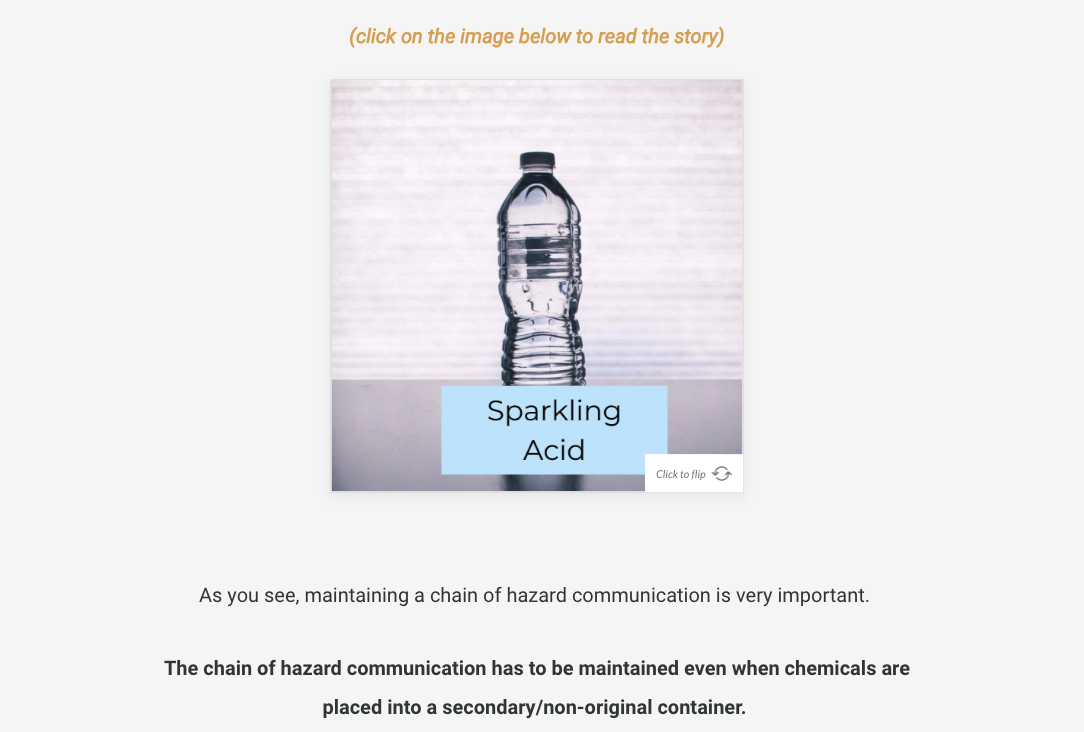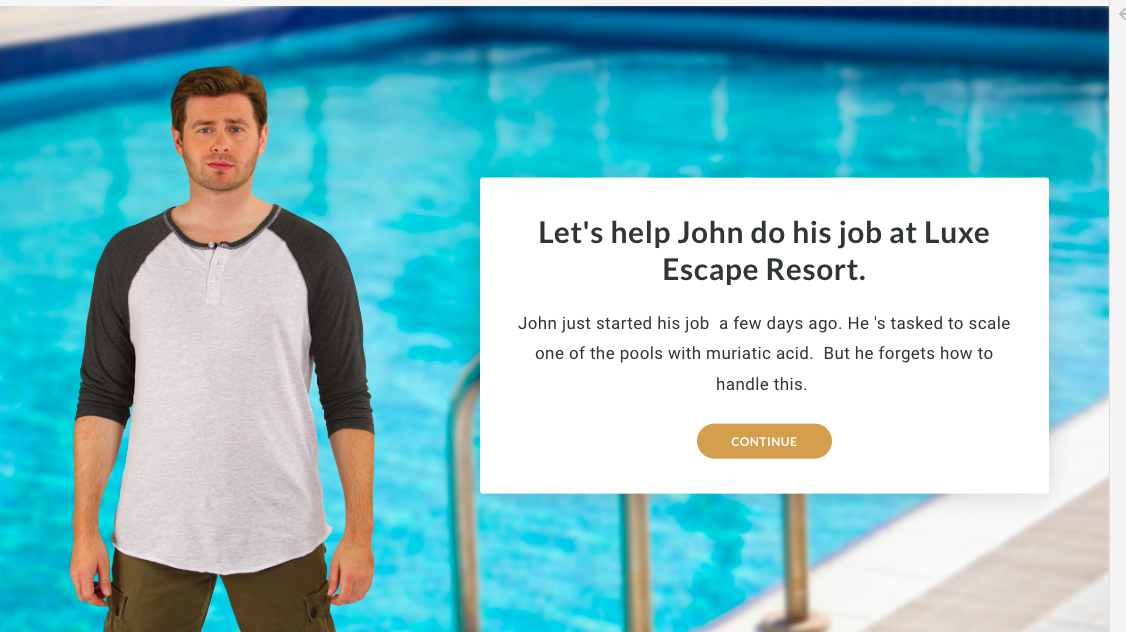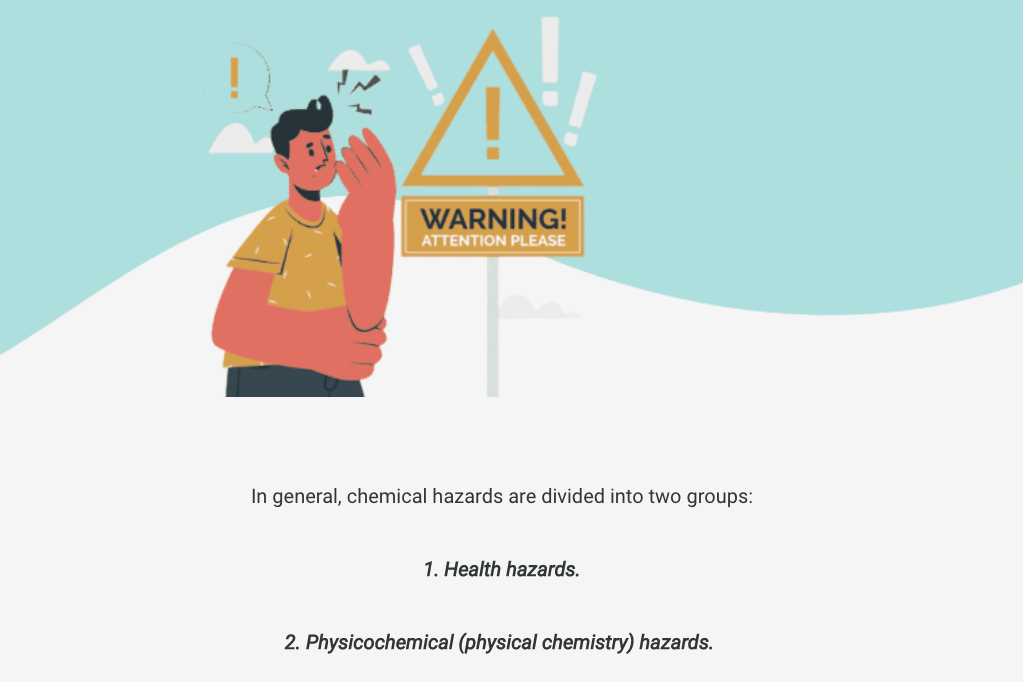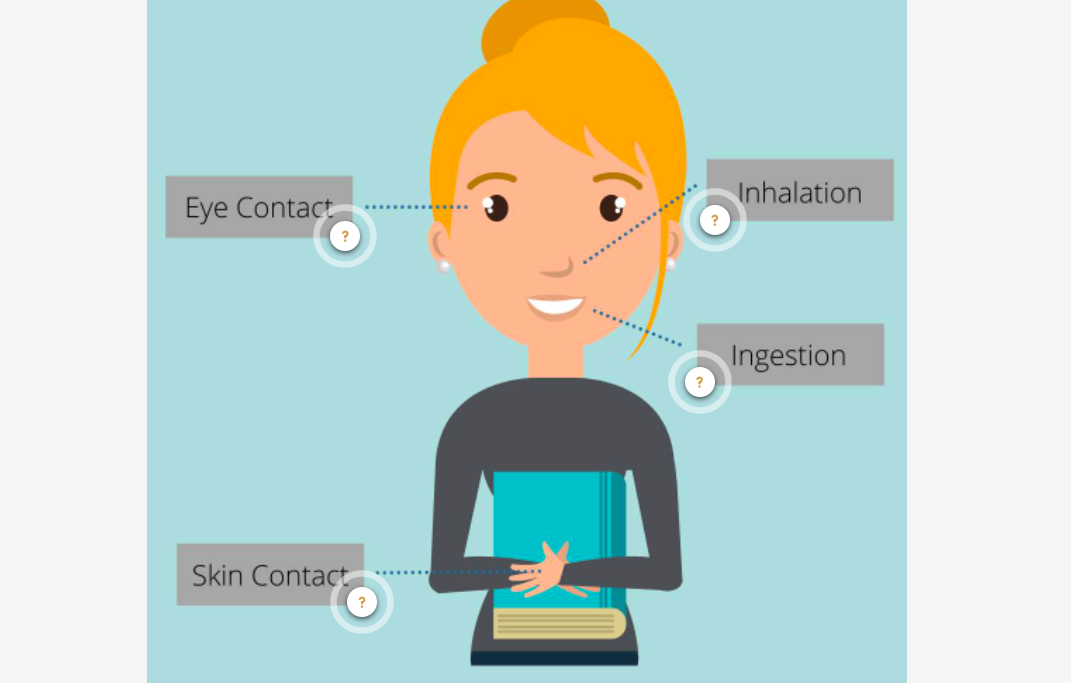
Chemical Hazard Safety
Design Process and Project Components
This course is designed to teach employees to recognize chemical hazards in the workplace so that chemical accidents can be prevented or mitigated.
Type: compliance course | Audience: all employees | Course length: 20 minutes.
Tools: Articulate Rise 360, Canva
Deliverables: design doc, job aids, e-learning course
Roles: I was the sole designer and developer for this course.
Design Process
PROBLEMS: This safety course, along with other compliance courses, were delivered as yearly ILT trainings. However, it’s increasingly challenging to schedule ILT training. To provide more flexibility, this ILT course was turned into an e-learning one. However, when turned into an e-learning course, the rating for this course has plummeted, and new hire frequently failed the course.
GOAL: To increase the course rating and decrease the failure rate of the first-time test takers.
INITIAL ASSESSMENT: I found that the content of this course is dry and the e-learning module has a first level of interactivity. Therefore, the challenge is to increase learners’ engagement, so that not only they complete their training, but view it positively, retain and apply their new knowledge. And second, to use only materials which are important and applicable for the employees’ job, to avoid cognitive overload and maintain focus. John Kerr, an educational psychologist, introduced the ARCS model to boost learner’s motivation.
SOLUTION: Design and develop an e-learning module (for flexibility) based on John Kerr’s ARCS model.
A = Attention grabbing. I used chemical incident stories throughout as a hook to draw the learners in, as well as used different types of interactions to keep the course engaging.
R = Relevant. I incorporated real-life scenarios to make this course relevant to real life. Thus, this course follows the stories of resort workers as they handle two pool chemicals. Branching scenarios are also employed to make the stories more interesting.
CS = Confidence & Satisfaction. Scenario-based knowledge checks and quizzes with instant feedback and opportunities to re-do, provide practices to increase confidence and create feeling of accomplishment.
Project Overarching Scenario
This course follows the stories of resort workers as they handle two pool chemicals. Scenarios are also employed to illustrate decision-making point the characters make in a variety of situation.
Course Development
After the design document was reviewed and approved, I proceeded with determining the color scheme, developing custom visual and job aids using Canva and finally building the e-course using Articulate Rise. I then made adjustments after getting feedback.
Project Features

An incident story with accordion interaction hooks the learners at the beginning of the course

Incident stories (flip card interaction) sprinkled inside the course to provide motivation.

Mini scenarios to provide real-life application and illustrate various decision points

Myth on chemical safety training to provide reasons why the training is important

Custom visual designed using Canva.

Custom visual for labelled graphic interaction. This course also use other types of interactions (drag and drop, matching, and so forth)

Scenario-based knowledge check. This course ends with graded quiz to test for theoretical knowledge.

Explore my Other Projects
Developed in Articulate Storyline 360
Developed in Articulate Storyline 360
Developed in Articulate Rise 360




